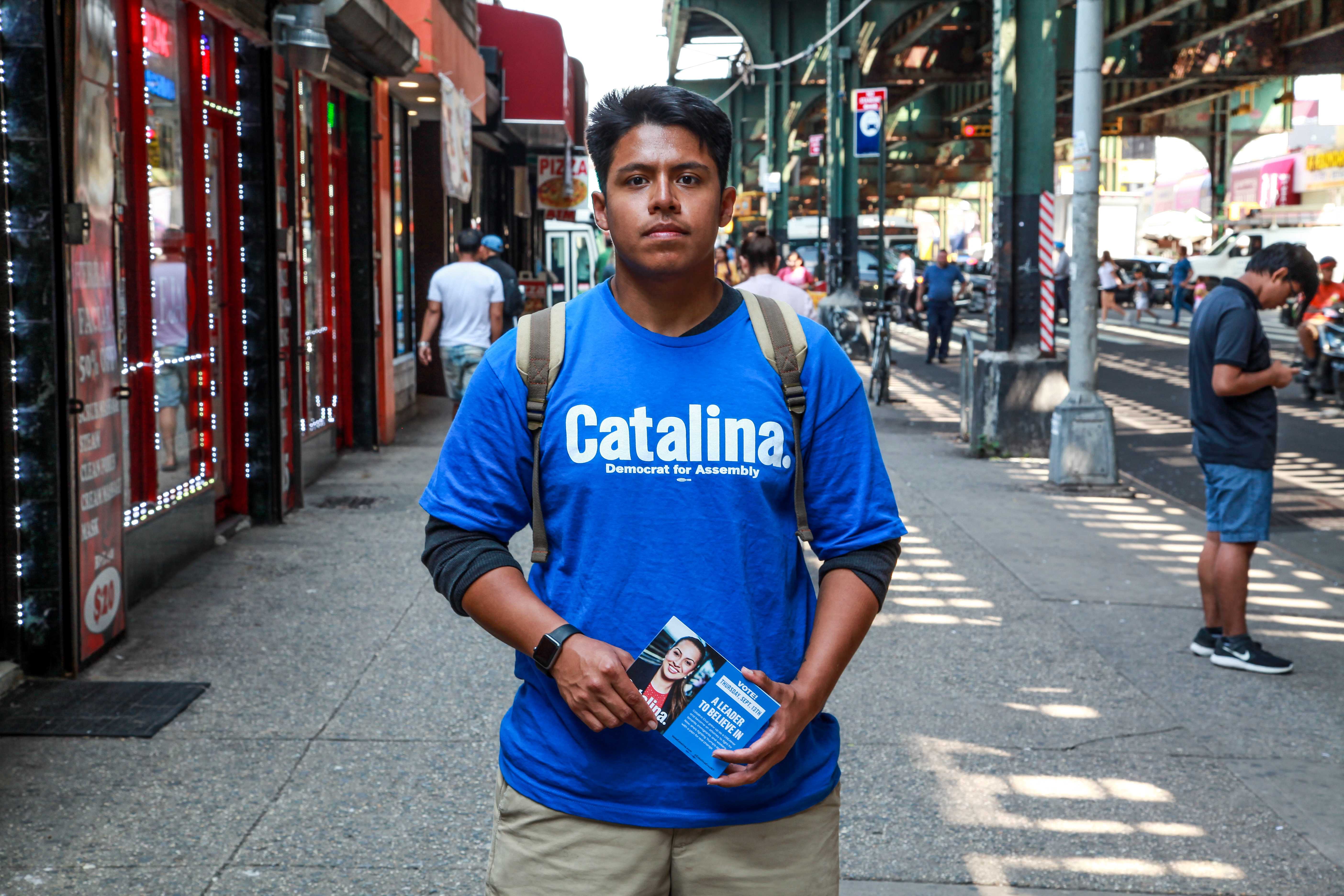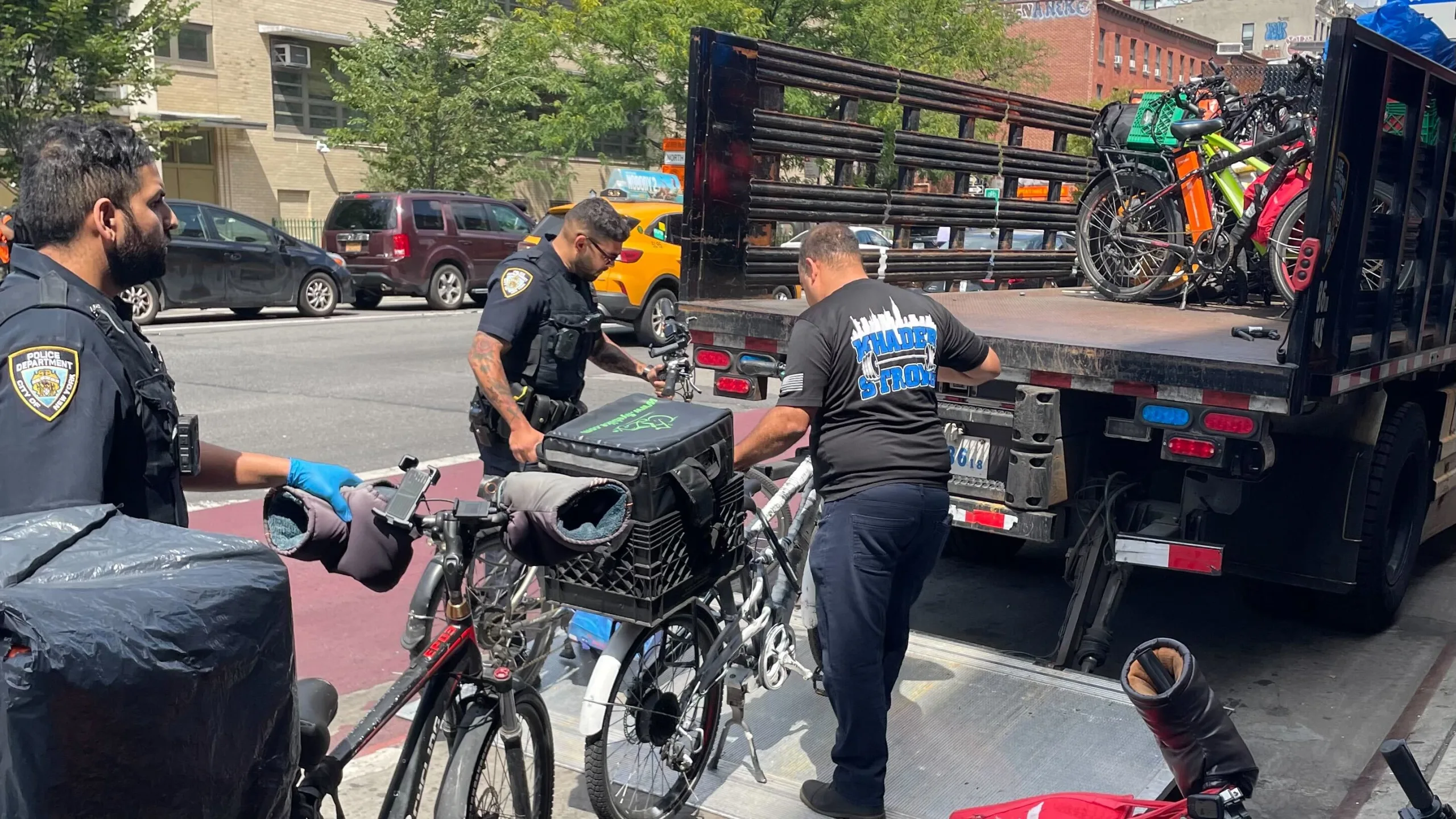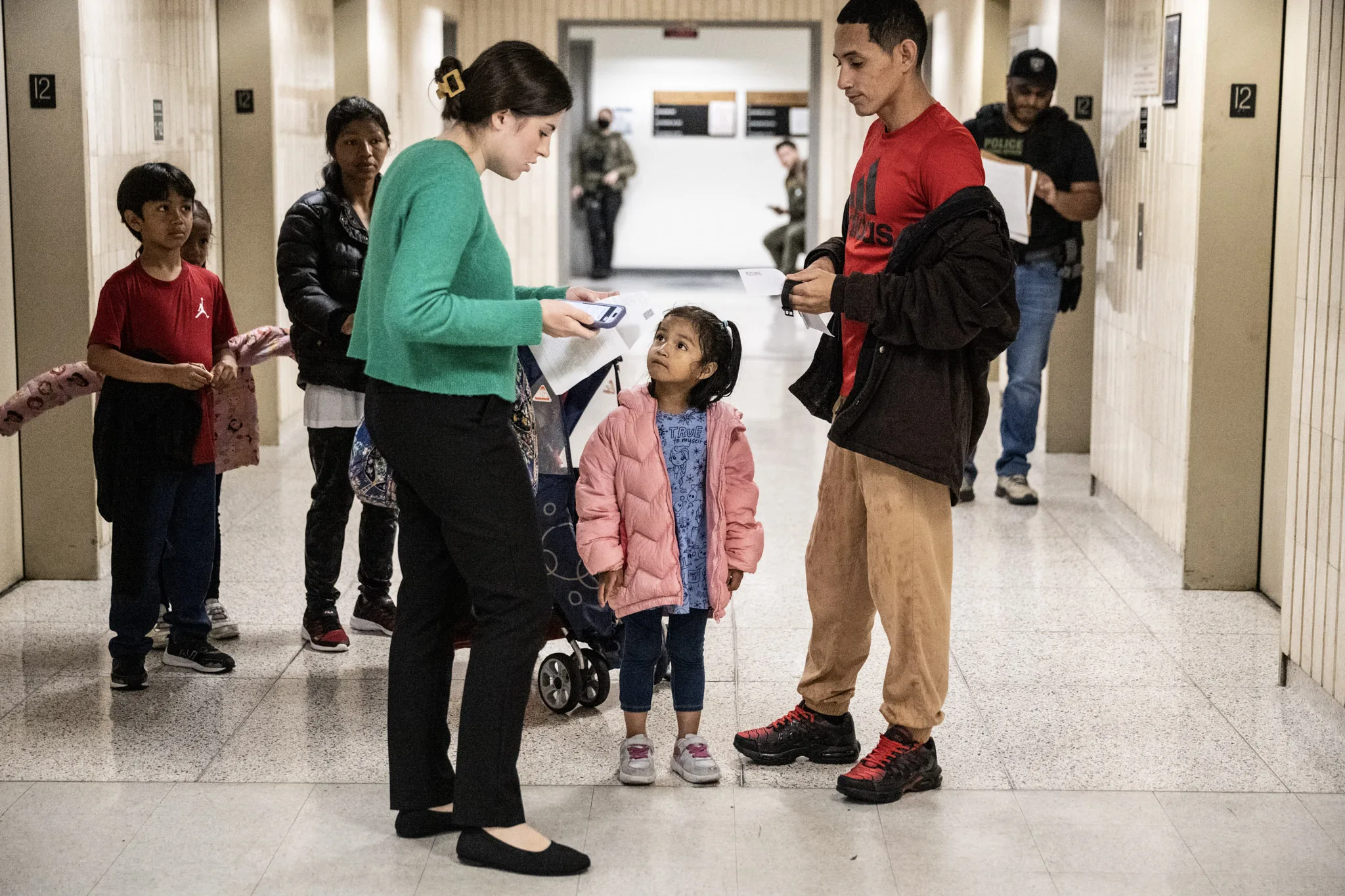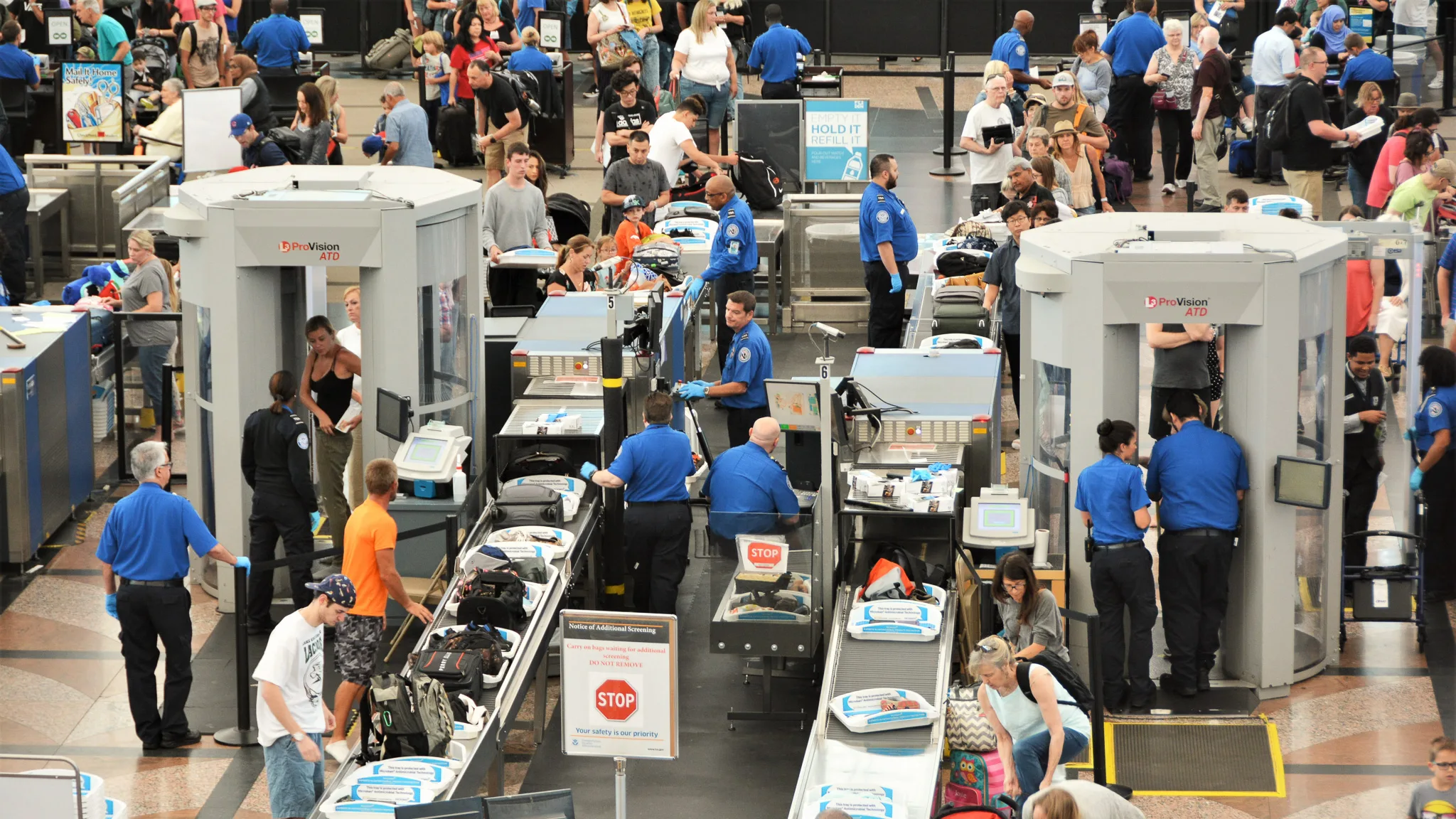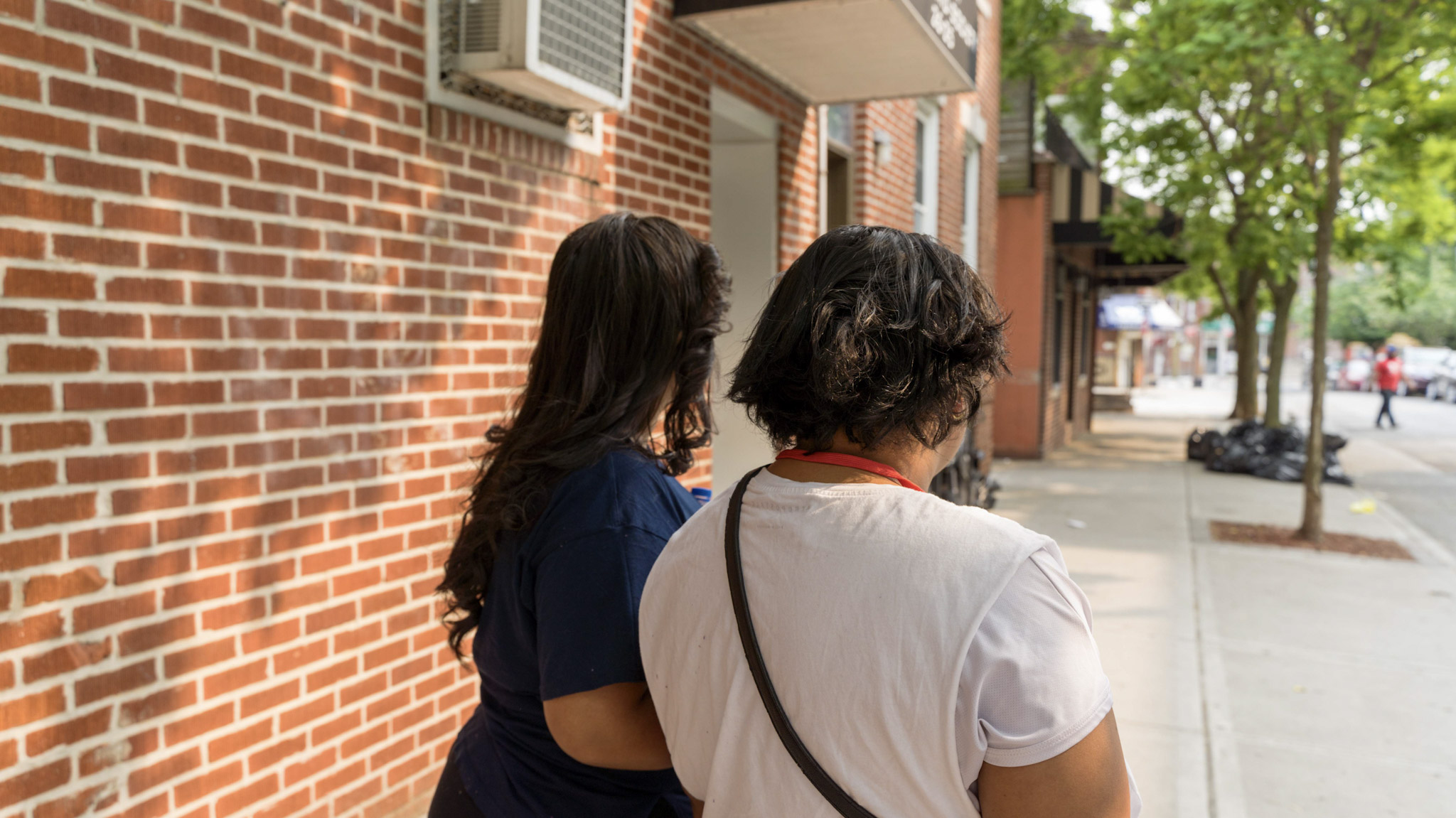Last year, in response to a rise in injuries and fatalities related to both e-bikes and mopeds, City Council member Robert Holden introduced a bill to require delivery workers to register their e-bikes with the New York City Department of Transportation (DOT) and be issued license plates.
While Council member Holden said the bill would create more accountability for e-bike riders, immigrant delivery workers say the increased regulation shifts the blame for unsafe streets onto them instead of the app companies they say are pressuring them to work faster. Advocates say the increased enforcement would only exasperate the delivery workers’ occupational hazards.
Also Read: Unsafe at Any Speed: Delivery Workers Deaths Are on the Rise in 2024
Delivery work is already a high-pressure and dangerous job, with at least 10 worker deaths on the city streets in 2024 alone. A 2023 study by the DOT found that motorized two-wheeler fatalities, which include mopeds and e-bikes, are up 120% since 2014.
Currently, under New York City law, all gas-powered mopeds require a driver’s license to operate and must be registered with the DMV. Only e-bikes and e-scooters are allowed to be driven without a driver’s license.
However, many delivery workers do not know they need a license to drive a gas-powered moped. Often, a gas-powered moped can be purchased at the same location that sells e-bikes, and a license is not required to purchase one.
As elected officials mull regulating e-bikes, the NYPD launched its own crackdown in 2022 on delivery workers, focusing on gas-powered mopeds. And last year, hundreds of confiscated mopeds were publicly crushed before a gaggle of media observers.
Although the NYPD claims they are targeting unlicensed mopeds, delivery worker Antonio, 38, who has a license and registration for his moped, says that’s not always the case with NYPD still issuing arbitrary tickets to licensed moped riders for infractions such as operating recklessly, running stop signs, and riding on sidewalks.
“My moped is registered and everything, but the cops still stop you and give you a ticket for any reason,” said Antonio, who only shared his first name for safety concerns. “Delivery workers are very uncomfortable. I’m scared. Anybody could stop me. I don’t know what could happen from one day to another.”
An undocumented immigrant from Mexico, Antonio, has been making deliveries for six years and says he has earned a decent living doing so. As of 2024, New York City requires delivery apps to pay delivery workers $19.56 per hour before tips.
He says he spends 10 hours a day on his gas-powered moped. He aims for speed as he races from one location to another, delivering for Doordash. The faster he delivers, the more likely he gets another job quickly, ensuring a steady flow of work, he says.
Also Read: NYC Labor Complaints Surge 260% as Delivery Workers Lead Fight for Fair Wages
But Council member Holden disagrees with the idea that e-bike regulation would criminalize delivery workers, instead arguing that it would improve public safety.
“The idea that a license plate would criminalize delivery workers is absolutely absurd,” he told Documented in a statement. “If you break a traffic law now, you can be stopped by the police — and you should be. A license plate is about accountability, plain and simple, ensuring that everyone riding an e-bike, whether for work or leisure, follows the law. It also gives pedestrian victims of e-bike crashes a way to identify reckless drivers just like with any other vehicle on the road.”
In response to the bill, the Workers Justice Project (WJP) introduced its own plan, which calls for a compressive reimagining of street safety that prioritizes both pedestrians and delivery workers.
The proposal rejects the idea of licensing delivery workers’ e-bikes and calls for the establishment of delivery worker hubs so they have a place to charge their bikes and have access to resources as well as rest. It also calls for immediate implementation and support of the expansion of the city’s trade-in program for e-bikes and batteries.
Additionally, WJP is calling for the city to regulate the apps by forcing them to implement tipping transparency, paid sick leave, and protections against retaliatory deactivations if workers refuse a job that puts their lives at risk.
Also Read: Over 90 Delivery Workers Claim DoorDash Stole Their Wages
“We aren’t going to ticket our way out of this problem,” said Gabriel Montero, director of Development and Communications at WJP. “We are going to adapt the streets, adapt policy, regulate the industry.”
App companies like Uber Eats and Doordash, rely on high-tech algorithms which have stringent delivery timeframes that delivery workers say are almost impossible to keep up with unless they work faster. If workers don’t work at such a fast pace they say they can be at risk of deactivation. Often, the distance between deliveries makes e-bikes impractical and incentivizes the use of gas-powered mopeds which allows them to make deliveries at a faster pace, greatly enhancing their earning potential.
“Sometimes we have no choice but to use the mopeds because the work requires long distances but of course, we have a lot of fear of being stopped,” said Antonio. “I have had friends who have been stopped and been taken to court.”
Montero says that WJP is opposed to licensing e-bikes but is supportive of the licensing of gas-powered mopeds. However, Montero argues that cracking down on gas-powered moped users instead of regulating the apps is not a long-term solution.
“One of the issues you see is delivery workers transitioning to mopeds because they don’t have access to e-bikes and the demands of the app companies to go very far distances in very unrealistic time frames,” he said. “You can’t comfortably do that with an e-bike. The root cause of the safety issue around e-bikes is that the app companies have not been regulated, and they profit from this chaos. It’s in their interest to have as many workers as possible going as fast as possible.”
Recently, former Governor Andrew Cuomo vowed to put an end to “the chaos of e-bikes” if he were to be the next mayor.
Like Holden’s bill, Cuomo’s proposal would require delivery workers to register all e-bikes and e-scooters with the Department of Transportation. Additionally, Cuomo’s plan would hold delivery apps liable for damages in the event there’s an accident. It would also require the Department of Consumer and Worker Protection to institute regulations that help eliminate pressure apps put on workers that force them to put speed above safety. Cuomo, while governor, legalized e-bikes in 2020.
Despite fears of being stopped by the police, Antonio has been committed to organizing with WJP to make the city streets safer and fight for increased labor protections for his fellow workers. Instead of retreating to the sidelines, he believes delivery workers need to be vigilant and visible.
“Delivery workers need to protest and organize so we don’t have to be so fearful,” he said. “We are not criminals — we are hard-working people.”


